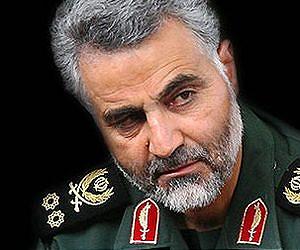New satellite imagery has revealed evidence of ongoing mass killings in and around El-Fasher, the capital of Sudan’s North Darfur, days after the Rapid Support Forces (RSF) seized control of the city, according to researchers at Yale University.
The Yale Humanitarian Research Lab said the images show clear signs that a large portion of El-Fasher’s population has been “killed, detained, or is in hiding.” Analysts identified at least 31 locations containing what appear to be human bodies scattered across residential neighborhoods, a university campus, and military sites, concluding that “indicators of ongoing mass killing are clearly visible.”
The UN human rights office said hundreds of civilians and unarmed detainees may have been killed during the RSF’s assault on the city, along escape routes, and in the days following its capture. Witnesses reported summary executions, mass killings, and sexual violence, prompting the UN to call for an independent, comprehensive investigation to ensure accountability.
The fall of El-Fasher, the army’s last stronghold in Darfur, marks a turning point in Sudan’s civil war, which began in April 2023 between the Sudanese Armed Forces (SAF) and the RSF. With El-Fasher under its control, the RSF now dominates all five Darfur state capitals, fueling fears of a de facto partition of Sudan between an RSF-controlled west and an army-held east, including Khartoum.
The takeover has triggered mass displacement. The International Organization for Migration (IOM) said more than 33,000 people fled El-Fasher between October 26 and 28, with UN agencies later estimating that the number had surpassed 36,000. Many civilians walked for days to reach Tawila, a town already overwhelmed by hundreds of thousands of displaced people.

The UN Security Council condemned the RSF offensive, calling for an end to violations, safe humanitarian access, and protection of civilians. Aid officials warned Council members of reports of sexual violence, attacks on hospitals, and worsening conditions for civilians trapped under siege-like conditions for nearly 500 days.
The RSF said it had arrested several members accused of abuses in El-Fasher, including a commander filmed carrying out executions. However, UN officials and humanitarian organizations questioned the credibility of RSF-led investigations and its willingness to hold perpetrators accountable.
Witnesses and aid workers described executions, assaults in hospitals, and killings inside maternity wards. Satellite imagery and field reports confirmed the presence of bodies near RSF vehicles and evidence of house-to-house searches. Local and international groups said some of the incidents may amount to war crimes, crimes against humanity, or ethnic cleansing.
The conflict between the army and RSF has created one of the world’s largest displacement crises. According to the United Nations, more than 11.7 million people have been forced from their homes inside Sudan or across its borders. Basic services have collapsed, and humanitarian funding remains critically insufficient.
Aid agencies say access restrictions and continued attacks on relief workers are worsening the suffering. Thousands of newly displaced people arriving in Tawila reportedly lack food, water, shelter, and medical care, with many suffering from malnutrition, disease, and injuries after weeks of bombardment.
Human rights organizations and UN officials are urging an immediate halt to attacks on civilians, accountability for violations, and unhindered humanitarian access. They called on states supplying arms to the warring parties to end weapons transfers and to back efforts for a durable peace in Sudan.


